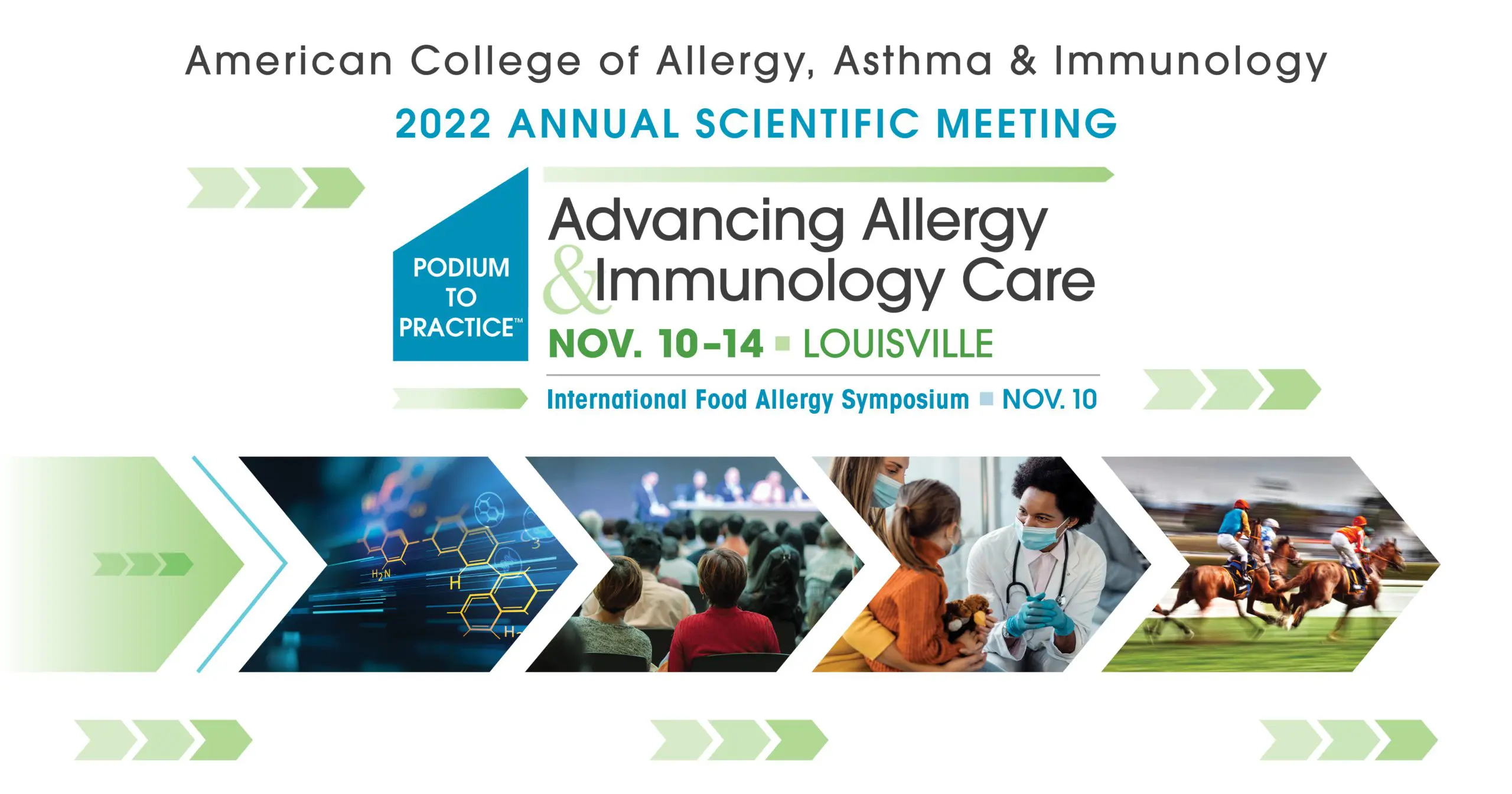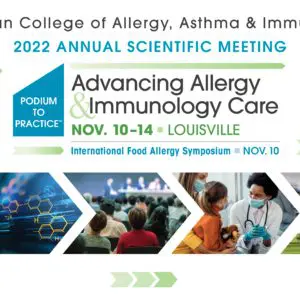November 9, 2022
Prophylactic treatments targeting kallikrein significantly reduced frequency of attacks
LOUISVILLE, KY (November 10, 2022) – Hereditary angioedema (HAE) is a rare, genetic disorder characterized by severe, recurring, and unpredictable swelling attacks in various organs and tissues of the body, which can be painful, debilitating, and life-threatening. A new study being presented at this year’s American College of Allergy, Asthma and Immunology (ACAAI) Annual Scientific Meeting in Louisville, KY shows a treatment using the CRISPR genome editing technology succeeded in alleviating swelling and reducing the frequency of attacks.
“NTLA-2002 is a one-time, systemically administered CRISPR genome editing candidate being developed for HAE,” says clinical immunologist Hilary Longhurst, MD, PhD, lead author of the study. “It is designed to knock out the KLKB1 gene in liver cells, thereby reducing the production of a specific protein called kallikrein whose uncontrolled activity is responsible for the recurring, debilitating and potentially fatal swelling attacks that occur in people living with HAE.”
The interim clinical data from the Phase 1, first-in-human study of NTLA-2002 is being presented at the ACAAI meeting this year, specifically for the patients with HAE (both males and females) treated to date at ascending doses of 25 mg, 50 mg and 75 mg.
“While the data is still emerging, all patients treated with a single dose of NTLA-2002 in the 25 and 75 mg dose cohorts had rapid and significant reductions in plasma kallikrein levels,” says Danny Cohn, MD, senior author on the study. “For the three patients in the 25mg dose cohort who reached a pre-determined time point where their HAE attacks were assessed, all patients had a significant reduction in HAE attacks as well.”
At both the 25 and 75mg dose levels, NTLA-2002 was generally well tolerated, and most adverse events were mild in severity. The most frequent adverse events were infusion-related reactions, which were mostly Grade 1 and resolved within one day. There have been no dose-limiting toxicities, no serious adverse events and no adverse events of Grade 3 or higher observed to date.
“These early data support NTLA-2002 as a potential one-time treatment to cure the symptoms of HAE,” says Dr. Longhurst. “Clinical development will continue for this program with the randomized, Phase 2 portion of the clinical trial to begin in the first half of 2023.”
Abstract Title: In vivo CRISPR/Cas9 editing of KLKB1 in Patients with Hereditary Angioedema: A First-in-Human Study
Presenter: Hilary Longhurst, MD, PhD
For more information about severe allergies and anaphylaxis, or to find an allergist in your area, visit AllergyandAsthmaRelief.org. ACAAI Annual Scientific Meeting takes place Nov. 10-14. For more news and research from the ACAAI Scientific Meeting, go to our newsroom – and follow the conversation on Twitter #ACAAI22.
About ACAAI
ACAAI is a professional medical organization of more than 6,000 allergists-immunologists and allied health professionals, headquartered in Arlington Heights, Ill. The College fosters a culture of collaboration and congeniality in which its members work together and with others toward the common goals of patient care, education, advocacy, and research. ACAAI allergists are board-certified physicians trained to diagnose allergies and asthma, administer immunotherapy, and provide patients with the best treatment outcomes. For more information and to find relief, visit AllergyandAsthmaRelief.org. Join us on Facebook, Pinterest and Twitter.
Back to Newsroom

